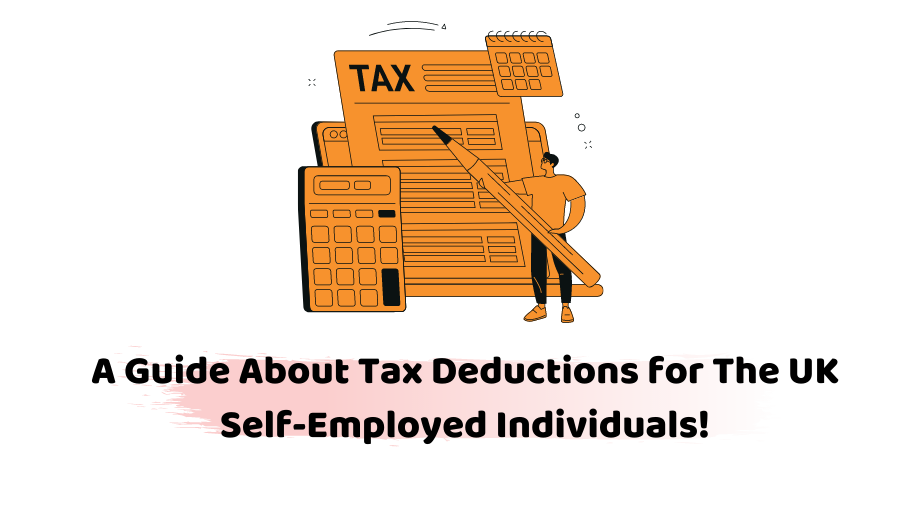If you are a self-employed individual who is residing in the UK, you can enjoy a range of benefits to carry out your own business. One of the great benefits is the tax-deductible expenses. Does it make your mind wonder about what is the deal of tax deductions while you are running your own small business? The general concept about tax-deductible expenses is when you tend to incur expenses with the intention of a business wholly and exclusively.
Such business-operated expenditures can be deducted as business expenses. Further in this blog, we have involved the salient features like the common expenses that are tax-deductible in the discussion. According to research, major news expenses like bills, broadband or phone expenses, the number of utility bills, and business travelling costs can come under this. We have listed and explained the most common expenses in the discussion below.
Reach out to one of the young and clever team professionals now to know more about the tax-deductible expenses if you are a self-employed individual.
The Common Tax Deductible Expenses in the UK for Self-employed Individuals
The owners of small businesses in the UK require help with maximum possibilities. This can involve the idea of reducing their taxes and saving money to invest or the ideas to carry out the business in a more efficient manner. There are the most major expenses that are tax-deductible when it comes to the discussion of self-employed business owners. We have gathered the information to benefit the self-employed individuals in the UK.
Cost of Traveling Expenses
You are required to ensure your travelling expenses are for business purposes by providing solid pieces of evidence to HMRC. This will allow claiming on the cost involved in the following listed business expenses:
- The travelling fairs of the taxi, bus, train, or air
- Servicing and repairing the vehicle that is being used for business travel
- Insurance of the van or car that is used for business travelling or sending products from one place to another place.
- In case the business trip is an overnight stay at a hotel, the cost involved in the subsistence and hotel room is also included.
- The cost involved in vehicle license fees, charges of hiring, parking charges and cost spent on fuel.
Moreover, you must be wondering about how to calculate the cost spent on a business trip. The reliable way to make error-free calculations about the expenses of your business trip and vehicle are:
- You need to maintain a detailed record explaining the mileage accumulated while business travelling.
- The other way is to adhere to the fixed rate of mileage per mile that is travelled for business purposes.
Furthermore, this is important to know here in case the self-employed individual stays at the same place for a time duration that is more than 24 hours, then it will not be counted as qualified to claim business mileage.
Clothing Business
In case you are in a job or business that requires specialist clothing protective outwears is one such example. The cost involved in this can be claimed at the time of tax return. However, luxury clothing like suits does not come on the list of eligibility.
Phone Expenses
It is allowed to claim back the cost that involves usage of broadband or phone for business purposes. Also, the cost of broadband connection and rental lines is allowed to claim back while you are working on your tax returns.
Utility Bills
In case of working from business premises, the following costs can be claimed:
- Insurance cost
- The cost involved in power and heat
- The amount spent on building rent
In case you are working from your home, you are eligible to claim business proportion type of expenses.
Computer
You are a self-employed individual who has spent on the cost of computer purely to carry out your business. UK annual investment allowance allows you to claim your computer expenses when you are working on your tax returns. In some cases, the computer is used for business and personal use as well.
In such a case, you can claim the proportion of expenses that are related to the business purpose only. This is based on the factor of time spent for the cause as well.
The Bottom Line
Now the discussion can come towards wrapping up as you have gathered a fair amount of information about tax-deductible expenses. We can sum up by saying that it is wise to maintain a good record of the business expenses f you want to make a successful claim of the qualifying business costs. This is because HMRC requires solid shreds of evidence that explain the cost indeed belongs to the business use and no factors of personal use are involved in the claim.
In the absence of evidence, the claim request will not be entertained. Generally, the idea is to keep the records for six years to be on the safe side. We hope these few minutes of reading have helped to develop a better understanding of the tax-deductible expenses.
Why don’t you try to get in touch with one of our professionals if you seek help to sort out your tax matters as a self-employed business owner?
Disclaimer: The information about tax-deductible expenses provided in this blog including text and graphics is general in n nature. It does not intend to disregard any of the professional advice.





















































